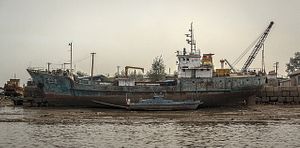On August 12, Chinese President Xi Jinping and his U.S. counterpart Donald Trump had a phone conversation on the Korean peninsula nuclear issue. On August 14, China announced a ban on North Korean coal, iron, seafood and other imports, so as to follow the U.N. sanction order.
According to China’s national news agency Xinhua and China’s foreign ministry’s regular press conference on August 14, Xi emphasized four main points to Trump in the phone call: First, that China and the United States have common interests in achieving denuclearization and maintaining peace and stability on the Korean peninsula; second, that the involved parties should practice restraint and avoid escalatory statements or actions; third, that a solution to the present crisis will be found via dialogue, negotiation and political settlement; and finally, the Chinese leader expressed willingness to work with the United States to appropriately resolve the issue.
In addition, it’s interesting to compare the Chinese version of the call with the U.S. version. According to the White House’s statement, both leaders affirmed “North Korea must stop its provocative and escalatory behavior” and the new U.N. resolution on North Korea was “an important and necessary step.”
“The relationship between the two Presidents is an extremely close one, and will hopefully lead to a peaceful resolution of the North Korea problem,” the statement added.
By the way, in China, no high-level officials or news reports have ever publicly claimed that the relationship between Xi and Trump is “close,” let alone “extremely close.”
Regardless, after the phone call between the two “extremely close” presidents, China’s Commerce Ministry together with China’s Customs Service issued a ban on a series of imports from North Korea, including coal, iron, iron ore, lead concentrates and ore, lead and seafood, in order to follow the U.N. sanctions order. The ban will be effective from August 15.
The ban on the goods mentioned above could be a great blow to North Korea. For example, coal was North Korea’s largest export and accounted for over $401 million in revenues per year, based on the data of the U.N. Resolution 2371.

































